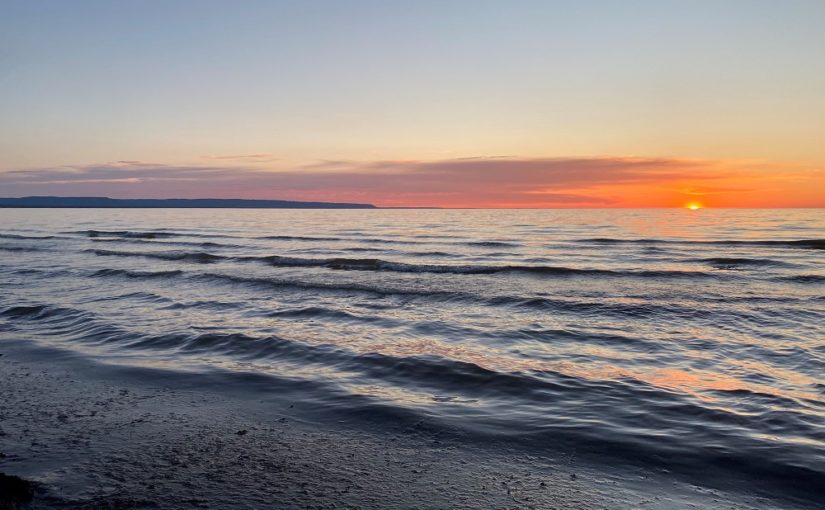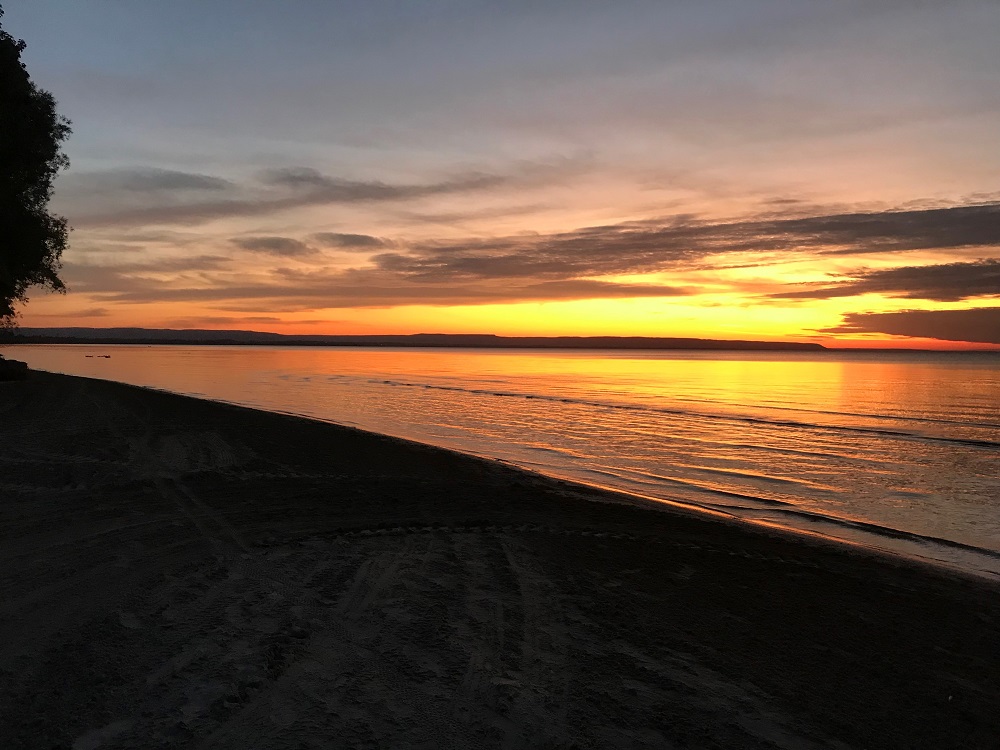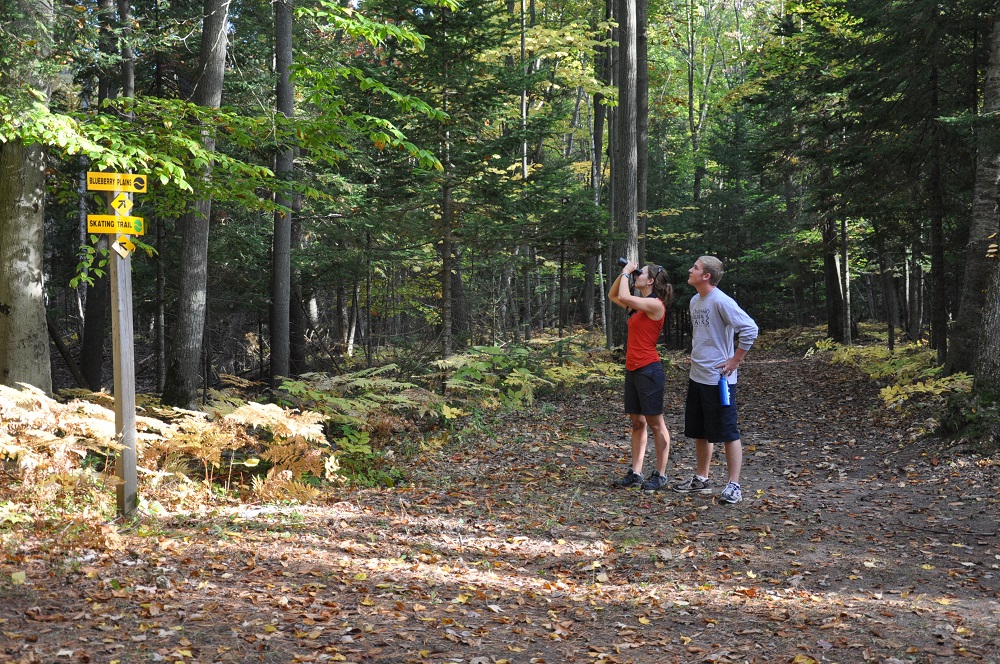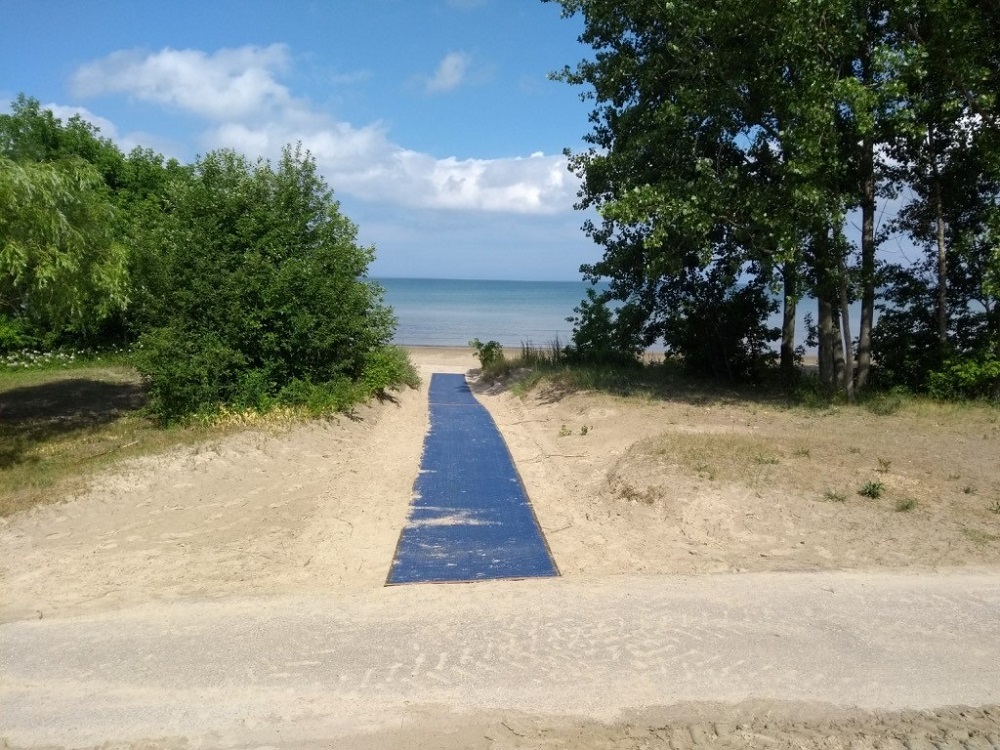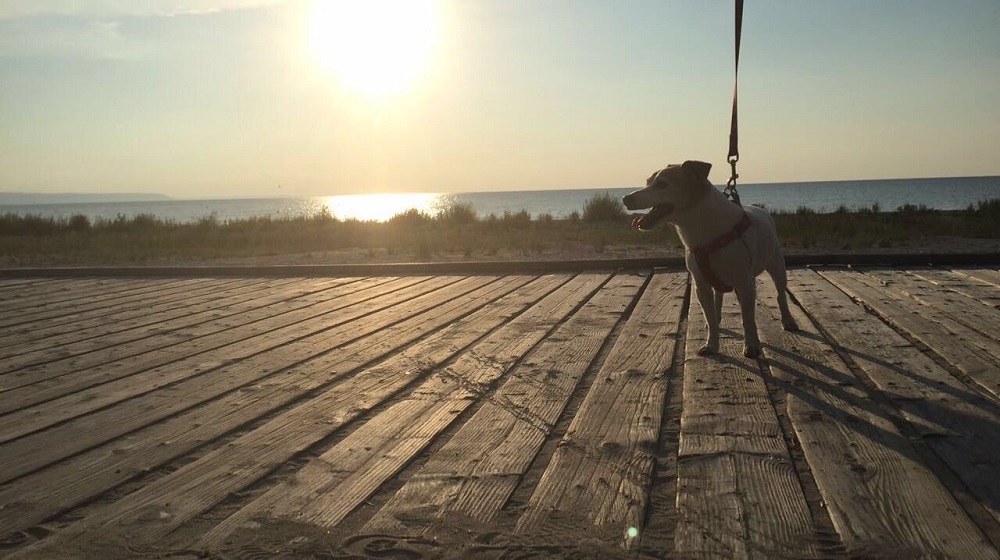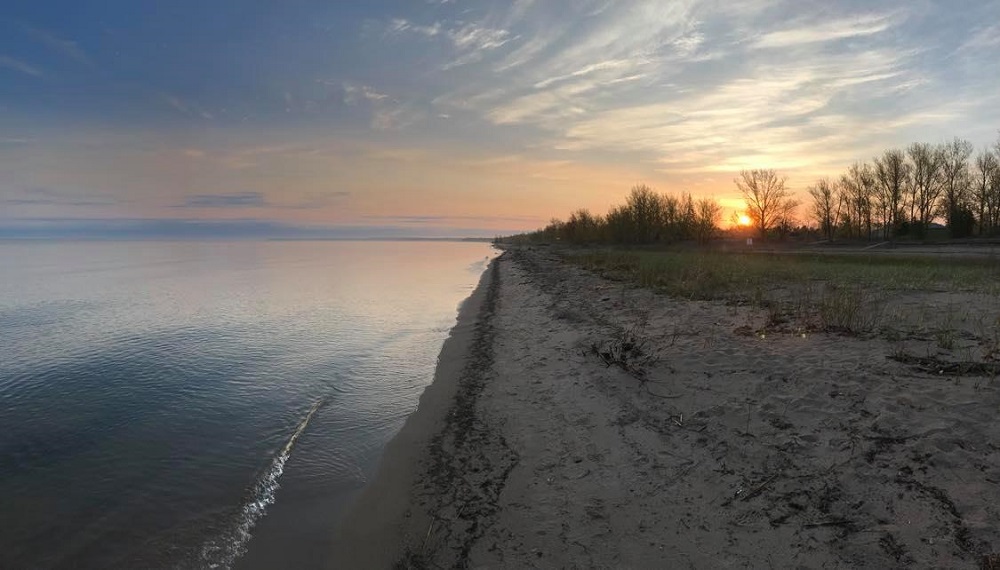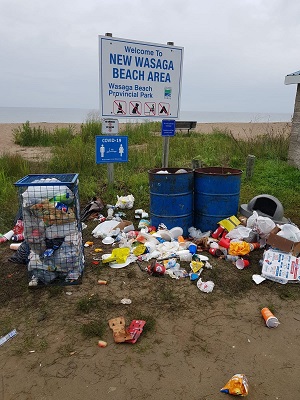Wasaga Beach Provincial Park is the busiest provincial park in the province, receiving over 1.5 million visitors every year!
Home to the world’s longest managed freshwater beach, Wasaga boasts 14 km of pristine sand, which makes it a hot spot for summer activity.
This also means that our park can get extremely busy, and often reaches capacity on hot summer days.
Our park is unique within the provincial park system as it is the only provincial park that is fully integrated within a town. This can be confusing for our visitors.
Planning a trip to Wasaga Beach? Check out our top tips for a fun and frustration-free visit (and follow the park on Facebook, Twitter, and Instagram for updates!):
- When is the best/worst time to visit?
- How do I get to the park?
- Where can I park?
- How much does it cost to visit Wasaga Beach Provincial Park?
- What are the park hours?
- The park is already full, now what?
- Can I stay overnight? Does Wasaga Beach offer camping?
- Is the park accessible?
- Can I bring my dog to the beach?
- Can I bring my boat?
- Can I drive my ATV in the park?
- Where can I fish?
- Is the beach safe for swimming?
- Does the park have ticks/Poison Ivy?
- How can I help protect and preserve the park for future users?
- Can I barbecue on the beach? Can I have a fire on the beach?
- Can I bring alcohol to the beach? Can I smoke/vape on the beach?
- Where can I eat?
- What is Ploverland, and why is there a portion of Beach Area 1 closed off?
1. When is the best/worst time to visit?
Wasaga Beach often reaches capacity on summer weekends.
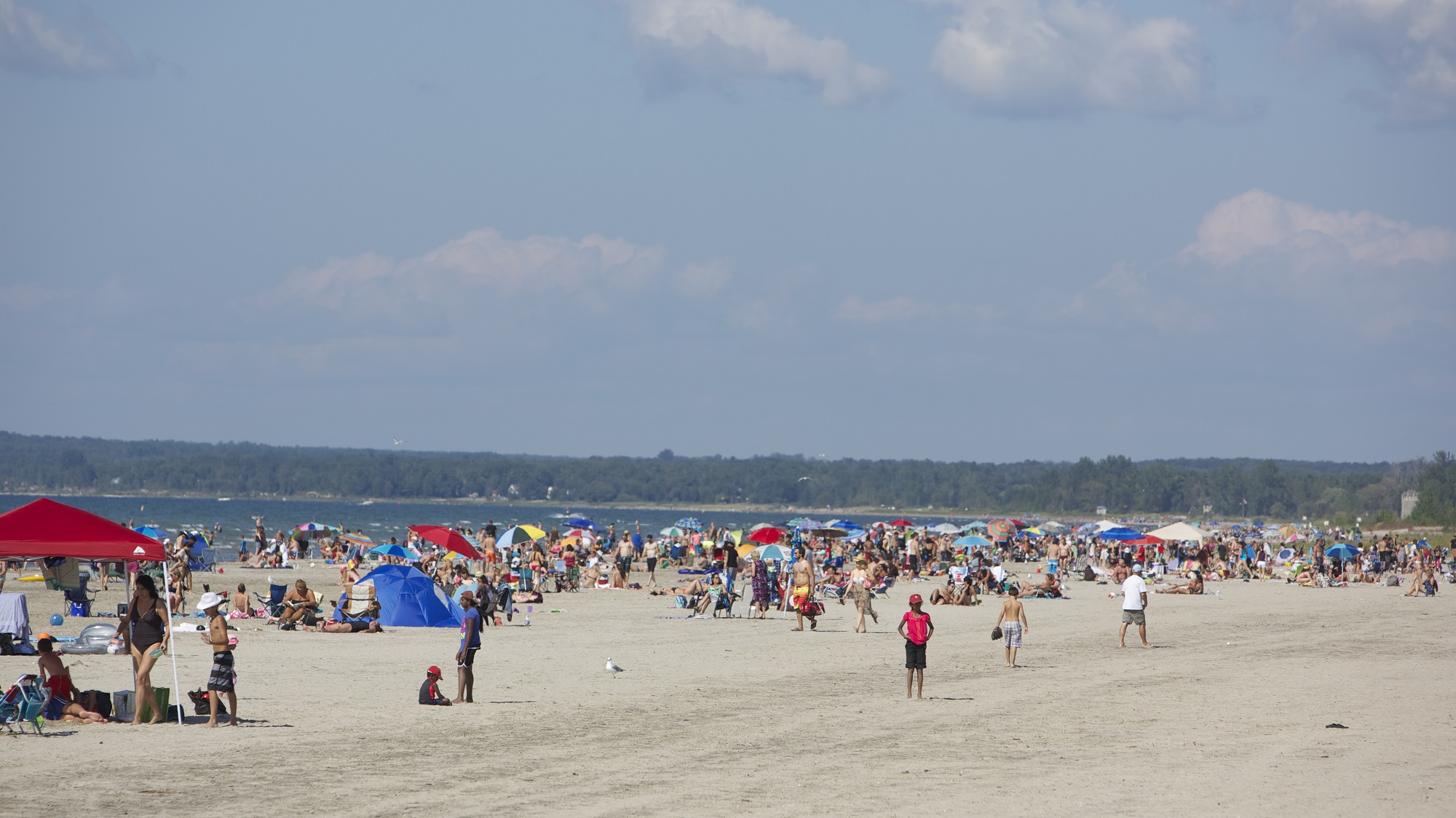
Our park is busiest on Saturdays, Sundays, and holiday Mondays between 9:00 a.m. and 4:00 p.m. Once our parking lots reach capacity, our gates close for safety reasons.
It is recommended that you remain in the beach area once parked as re-entry is not guaranteed once gates are closed.
Daily vehicle permits can be booked up to five days in advance of your arrival for Beach Areas 1-6. Parking can be purchased upon arrival at New Wasaga and Allenwood Beach Areas, as well as Nancy Island Historic Site on a first come, first served basis.
We strongly recommend visitors obtain an advance daily vehicle permit to guarantee their day use spot at Wasaga Beach. Visit the Ontario Parks day use page to learn more about planning your trip and buying your permit ahead of time.
Wasaga Beach Provincial Park has eight beach area locations to choose from, with different amenities and features available at each location.
Daily vehicle permits are not transferrable between different locations in the park or municipal parking areas located within the Town of Wasaga Beach. Please ensure you plan ahead and make your booking with care.
Visit the Wasaga Beach Park Overview Map to view each day use location and their respective amenities.
Looking to avoid the crowds? Wasaga Beach offers a great experience in the spring and early fall as well, so perhaps consider an off-season visit to our beach! If you’re planning a visit in the winter, check out this blog.
2. How do I get to the park?
There are multiple entrances into the Town of Wasaga Beach:
- West Entrance (Collingwood) — Highway 26
- East Entrance (Barrie/Midland) — County Road 92
- South Entrances (Angus/Stayner/Barrie) — Highway 26/Sunnidale Road or Highway 26/45th Street South or Klondike Park Road/Veterans Way
There are only two roads within the Town of Wasaga Beach that access our beach areas.
Beach Areas 1, 2, 3, 4, 5, and 6 are located west of the Nottawasaga River, and are accessed from Mosley Street. Visitors can purchase an advance daily vehicle permit for these parking areas.
New Wasaga Beach Area and Allenwood Beach Area are located east of the Nottawasaga River and are accessed from River Road East. Visitors can pay for parking upon arrival on a first come, first served basis at these beach areas.
3. Where can I park?
Wasaga Beach has eight beach area locations to choose from. To help guarantee access for day use, our visitors are now able to plan their trip ahead of time and obtain a daily vehicle permit up to five days in advance.
We strongly recommend visitors obtain an advance daily vehicle permit to guarantee your day use spot at Wasaga Beach Provincial Park. Visit the Ontario Parks day use page to learn more.
Daily vehicle permits are not transferrable between different locations in the park or municipal parking areas located within the Town of Wasaga Beach. Please ensure you make your booking with care.
Visit the Wasaga Beach Park Overview Map to view the day use locations and their respective amenities.
There are also Town of Wasaga Beach municipal parking lots and private parking lots in the area, each of which have their own parking rates. Please note that provincial park permits are NOT valid in municipal parking lots.
Vice-versa, a municipal parking permit or resident’s parking pass is NOT valid in provincial park parking lots. We recommend double-checking parking lot signs when you arrive to ensure you are in the right spot according to your parking permit.
4. How much does it cost to visit Wasaga Beach Provincial Park?
A daily vehicle permit (valid for one vehicle) is $21.00 per day during park operating season.
Ontario Parks seasonal passes are also available: a summer seasonal pass is $75 + HST and an annual season pass is $99 + HST (seasonal permits can be used to reserve a daily vehicle permit at no additional cost).
Town of Wasaga Beach municipal parking lots and private parking lots have their own rates.
5. What are the park hours?
From late spring to early fall, Wasaga Beach is open from 8:00 a.m. to 10:00 p.m. For operating dates, please check out our park’s web page.
Our Park Office (located at 11 – 22nd Street N) is open during the summer, Monday to Friday from 9:00 a.m. to 4:30 p.m., and Saturday/Sunday from 9:00 a.m. to 6:00 p.m.
6. The park is already full; now what?
There are other local beaches nearby, but if Wasaga Beach is already full then these other beaches are likely full as well.
Can’t go to the beach?
No worries, there is still plenty to do with the family! You can visit our Nordic and Trail Centre at 101 Blueberry Trail and go for a hike through the ancient dunes of Wasaga Beach on our 30+ km of trails.
The Blue Mountains, Collingwood, and Thornbury also have vibrant town centres with shops, cafes, and boutiques.
Check out South Georgian Bay Tourism for more recommendations for things to do around Wasaga Beach.
7. Can I stay overnight? Does Wasaga Beach offer camping?
No. Wasaga Beach Provincial Park is a day-use park only and closes at 10:00 p.m.
The closest overnight campgrounds are:
- West: Craigleith Provincial Park
- East: Awenda Provincial Park
- South: Earl Rowe Provincial Park
8. Is the park accessible?
When water levels permit, the park installs Mobi-Mats. These rollout pathways provide a smooth surface for wheelchairs, strollers, and bicycles to get to the water’s edge.
Boardwalks are also available at Beach Areas 1 and 2.
For more information on accessible features available in individual Beach Areas, please check out our Accessibility at Wasaga Beach Provincial Park blog.
9. Can I bring my dog to the beach?
Absolutely! Dogs are permitted within our designated Dog Beach at Beach Area 3.
Dogs are NOT allowed on the beach anywhere else outside of this designated area (service dogs exempt).
Dogs are permitted in all grassy picnic areas, on park trails, and on the boardwalks at Beach Areas 1 and 2. Remember, dogs MUST always be on a leash (no greater than 2 m) when in provincial parks.
10. Can I bring my boat?
There is a boat launch located within the provincial park at Beach Area 1. There is also a municipal boat launch located beside the Nancy Island Historic Site provincial parking lot, and a launch at Sturgeon Point Marina off of River Road East.
The municipal Nancy Parking Lot is to the west of the Welcome Centre across from the Beer Store.
There is a canoe/kayak/SUP launch at Wasaga Sports Park located off of Klondike Park Road. Canoes, kayaks, and SUPs are also permitted to launch off of the beach except in the designated swim zone located in Beach Area 1 between Spruce Street and 3rd Street, or within closed areas marked by fencing and signage.
Boats must adhere to the designated swim zone in Beach Area 1 and obey all maritime laws and navigational buoys.
Vessels are permitted to come into shore dead slow with no wake maintaining a safe distance from swimmers or anchor anywhere along Wasaga Beach Provincial Park with the exception of the designated swim zone in Beach Area 1 between Spruce Street and 3rd Street, or within closed areas marked by fencing and signage.
Please be cautious as you approach the beach as there are many sandbars that may restrict larger vessels.
11. Can I drive my ATV in the park?
ATVs are NOT permitted within the provincial park, which includes all roadways regulated by the provincial park, on the beach, or on the trails at the Nordic and Trail Centre.
ATVs are permitted on municipal roadways ONLY.
For more information on rules and regulations, please contact the park office at 705-429-2516. For rules regarding ATVs on municipal roadways, please contact the Town of Wasaga Beach.
12. Where can I fish in Wasaga Beach Provincial Park?
Fishing is permitted on the south shore of Beach Area 1 on the Nottawasaga River.
Fishing is also permitted in the river from the Nancy Island parking lot. Fishing is NOT permitted from the beach or from Nancy Island itself.
Fishing equipment is available to borrow for free with the Tackleshare program at the Welcome Centre located at Nancy Island Historic Site.
13. Is the beach safe for swimming?
During the summer, regular water testing takes place along the entirety of the Wasaga Beach shoreline.
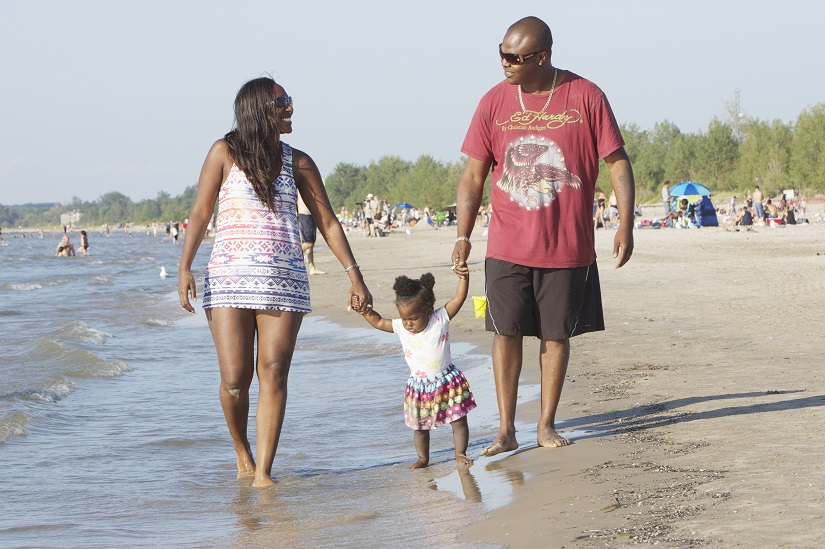
Any beach area advisories will be posted on our Alerts page.
Our beach areas do not have lifeguards. Everyone is responsible for their individual water safety. Children and non-swimmers should always be supervised.
Visitors to the beach should be aware of weather conditions, including offshore breezes and storms. Offshore breezes can blow inflatables out into dangerous waters and inflatables should only be used in shallow water.
Severe storms can arise quickly on Georgian Bay. If a storm approaches, take shelter in a hard-topped vehicle or nearby park facility. Avoid outdoor activities, including swimming, until 30 minutes after the last signs of lightning or thunder.
Swimming at the mouth of the Nottawasaga River is not recommended due to dangerous undertows. Local rivers and streams are NOT tested by the provincial park for bathing quality.
14. Does the park have ticks/Poison Ivy?
Tick safety: Ticks are common throughout Ontario, including at Wasaga Beach. To protect yourself from Lyme Disease, follow these safety tips.
Poison Ivy: Poison Ivy is prevalent in the park, especially along the side of park trails and on the dunes between parking lots and the beach.
Poison Ivy is an important dune stabilizer, helping to protect our dunes and beaches, as well as being a food source for wildlife. Some people may experience an allergic reaction if they come in contact with Poison Ivy. Avoid it by using park sanctioned trails and by keeping a close eye on children and pets.
15. How can I help protect and preserve the park for future users?
Please obey park signs and regulations.
DO NOT park on the dunes. They are an integral part of fragile ecosystems that have taken thousands of years to form.
Use established pathways when walking between the parking lot and the beach. The dune’s vegetation holds it in place and helps to keep our sand on the beach. These plants are sensitive to trampling by both tires and feet.
Leave the sand on the beach! Wasaga Beach is a relict beach, meaning the sand is non-replenishing.
The sand that is currently on the beach is all the sand we’ve got! Help us keep it in place by shaking out towels and belongings before leaving the beach. Whack shoes together and wipe feet before you get in your car to leave at the end of the day.
Take your garbage home with you.
We often have visitors leaving more garbage than our bins can handle on a busy weekend, especially when they leave behind their tents, chairs, and barbecues.
Wind and wildlife will also move garbage around before our maintenance team has an opportunity to empty all of the bins (14 km of beach to cover — that’s a lot of garbage bins!).
Each year, park staff remove approximately 200,000 kg of garbage from the park.
Help us reduce this number by bringing re-usable food storage containers, limiting the amount of toys, keeping track of your belongings while at the beach, and taking your garbage home.
16. Can I barbecue on the beach? Can I have a fire on the beach?
Barbecuing is permitted in the grassy picnic areas of the provincial park and must occur within a contained unit that is raised from the ground.
Coals must be deposited in designated charcoal pits. For the safety of the park and the visitors, do not bury hot coals in the sand (stepping on hot coals = OUCH!).
Fires are not permitted ANYWHERE in Wasaga Beach Provincial Park.
17. Can I bring alcohol to the beach? Can I smoke/vape on the beach?
Having open alcohol and/or consuming alcohol is not permitted anywhere on the beach or within the provincial park.
Please remember that the provincial park is a public beach. Patrons caught with open alcohol and/or consuming alcohol will face a fine from park wardens or OPP.
All provincial beaches are designated as smoke-free, which means smoking and vaping are NOT permitted on the beachfront. Smoking/vaping are also not permitted within 20 m of a public building or playground.
Smoking/vaping is permitted in grassy picnic areas, however we ask that all cigarette butts be disposed of in a receptacle or garbage bin. Cigarette butts are the number one garbage item at Wasaga Beach, and pose a health risk to park visitors and the ecosystem.
18. Where can I eat?
Wasaga Beach Provincial Park does not offer a restaurant or store that provides food.
Provincial Beach Areas 1 and 2 are the closest beach areas to the shops and restaurants on the main end.
19. Why is there a portion of Beach Area 1 closed off? What is Ploverland?
Piping Plovers are an endangered shorebird that returned to nest in Ontario in 2007 after a 30-year absence of nesting from the province.
Wasaga Beach has been one of the choice historical nesting sites that Piping Plovers have returned to with the first pair of Piping Plovers observed in 2005, and the first nest observed in 2008.
Wasaga Beach Provincial Park staff monitor these birds every year and provide protection for them to successfully nest and fledge.
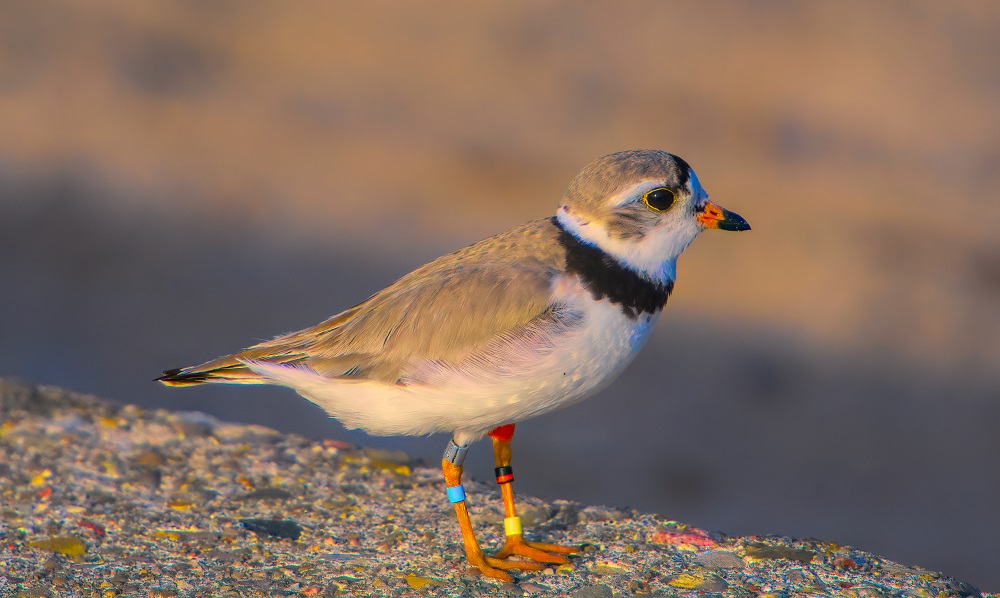
Piping Plovers are protected under the Provincial Endangered Species Act, 2007 (ESA) and Federal Species at Risk Act, 2002.
The ESA provides both species and habitat protections. To protect the habitat and avoid impacts to Piping Plover, a fence will be erected 50 m around each nest. This is done with a combination of t-bars, rope, and signage. This fencing will remain in place from the time the adult Piping Plovers establish their nest in May until their chicks have fledged in August.
Wasaga Beach Provincial Park has three areas that Piping Plovers have nested, including Beach Area 1 (famously named Ploverland), New Wasaga Beach Area, and Allenwood Beach Area; however we never know where our Piping Plovers are going to choose for their next spot!
Keep your eyes peeled while visiting and you may get to witness these spectacular birds displaying their territorial behaviour, brooding their chicks, or performing a mating ritual which comprises of an entertaining, high stepping dance.
Learn more about Piping Plovers at Wasaga Beach.
